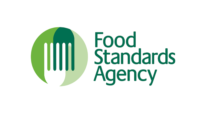The UK Food Standards Agency (FSA) and Food Standards Scotland (FSS) have published an extensive review of the UK and Scotland’s food standards, which is intended to be the first in a series of reports that will be published annually. The report describes the key changes in food standards from 2019 to 2021 and determines whether food in the UK is “fundamentally safe, nutritious, authentic, and what it claims to be” by examining data from local authorities, government statistics, compliance returns from import checks, and the FSA’s and FSS’ own research and surveillance activities. The report also assesses the enforcement of, and industry’s compliance to, UK food standards.
The report notes that, despite recent difficulties around the COVID-19 pandemic, Brexit, and the war in Ukraine, food standards in the UK have largely been upheld. However, the report also cautions that two main concerns may result in future challenges: the decrease in the number of inspections of food businesses caused by local authorities’ lack of resources, and the reduced ability to prevent the entry of unsafe food into the UK caused by a delay in establishing import controls for high-risk food and feed from the EU.
Import Controls
FSA and FSS express their commitment to collaborating with other government agencies to ensure the implementation of improved import controls. Although the agencies report that there have not been significant changes in the food safety standards of imported goods over the past two years, FSA and FSS believe that the current state of the UK’s lack of import controls and absence of border checks impedes the agencies’ abilities to ensure that food imported to the UK is safe and meets domestic standards. Full import controls for goods imported from the EU to the UK are expected to be finalized, along with a modernized approach to border controls, by the end of 2023. Additionally, the report mentions that new free trade agreements are in the process of ratification for Australia and New Zealand.
Regulatory Compliance
FSA and FSS state that work to increase the number of inspections in food businesses—especially cafes and restaurants—is underway, but progress is constrained due to resource and staffing issues. Keeping these limitations in mind, the report presented key compliance data:
- Over 95 percent of food businesses inspected by local authorities were “broadly compliant” or higher in England, Wales, and Northern Ireland
- Scotland had a food law compliance rate of over 96 percent
- Three-quarters of food establishments in England, Wales, and Northern Ireland achieved a top rating under the Food Hygiene Rating Scheme, but 3 percent received low scores that require improvement
- In Scotland, under the Food Hygiene Information Scheme, nearly 94 percent of food businesses received a pass rating, with approximately 6 percent of businesses requiring improvement
- There was high and stable compliance with hygiene standards in meat and dairy establishments, as well as feed businesses.
FSA and FSS state that levels of non-compliance may be on the rise within food businesses and that the agencies are working with local authorities as they resume inspections, beginning with high-risk establishments. The report states that future compliance levels may be affected with the emergence of online food businesses.
Additionally, FSA and FSS claim that the agencies’ sampling activities during the pandemic ensured that the basic safety of the majority of food products was upheld. However, a significant number of products did not meet required standards in at least one area, particularly in terms of the quality and accuracy of consumer information. FSA and FSS express that there is a need for ongoing monitoring and increased investment in a wider range of sampling activities.
Regarding difficulties with workforce recruitment and retention, FSA and FSS are implementing measures to increase the number of official veterinarians and meat hygiene inspectors that are employed by the government. Furthermore, FSA and FSS will assist local authorities in recruiting and retaining environmental health and trading standards officers.
Food Safety Incidents
The report also addresses the occurrence of food safety incidents in the UK. There were less recorded food safety incidents in 2020 than usual, which could be attributed to business lulls caused by COVID-19 lockdowns. However, levels of incidents have since recovered to historic averages. There was also a decrease in allergen incidents during the reporting period, which may be due to increased industry awareness and improved food safety practices following several severe incidences.
The report notes that ethylene oxide in sesame seeds accounts for many of the reported cases of chemical contamination in 2020 and 2021. Additionally, the report mentions that there was a rise in cases of microbiological contamination of food in 2020 and 2021, which FSA and FSS attribute to the introduction of whole genome sequencing for advanced surveillance, as well as the occurrence of a specific Salmonella outbreak that triggered increased sampling activity.
The report also notes that, due to Brexit, the UK no longer has full access to the European Commission’s Rapid Alert System for Food and Feed, although it continues to receive notifications concerning the UK. FSA and FSS have established alternative arrangements with international partners and will be investing in new surveillance approaches. Regardless, the levels of incoming and outgoing notifications from EU and non-EU countries have remained stable.
Food Crime
Food crime was another focus of the report. There has been no evidence of significant exploitation of supply chain disruptions caused by the pandemic, nor has there been a discernible increase in food crime during the reporting period. There were 100 successful disruptions of food crime reported by UK food crime units in 2021. The first prosecution stemming from an investigation by the National Food Crime Unit also took place in 2021.
In future reports, FSA and FSS hope to consider broader production standards to reflect increasing public interest in the food system’s impact on the environment, animal welfare, and other relevant issues.





